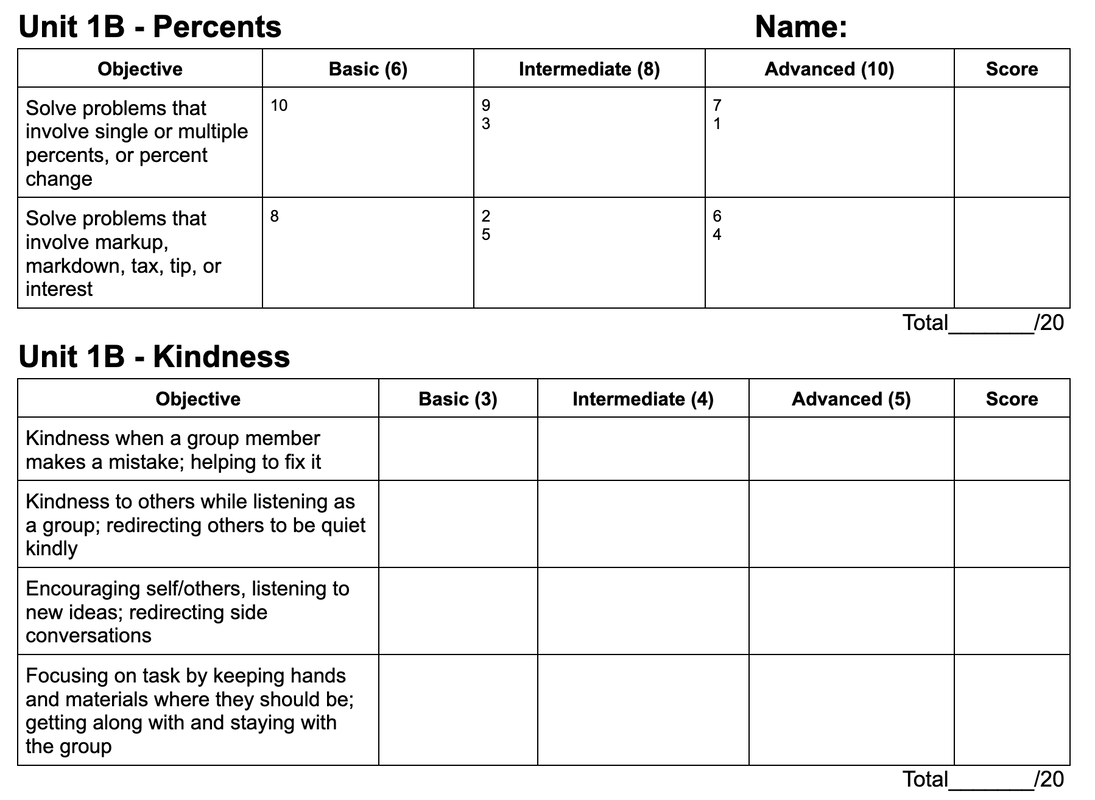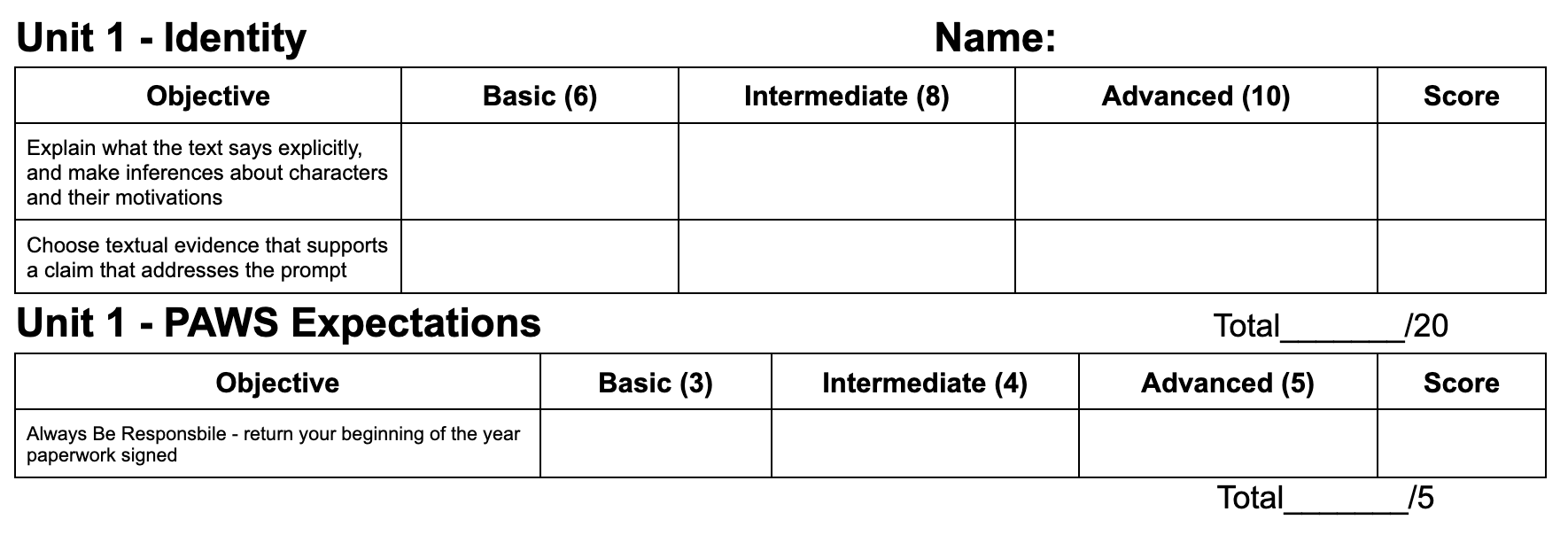So I went into this year thinking I'd do something similar, but not quite sure how that would work.
I build a navigation tool for the first unit, which focuses on supporting claims with evidence:
Another difference is that I don't plan on giving a lot of multiple choice tests, as I did last year. The district provided common assessments we had to use, but in ELA, the assessments aren't obligatory.
My plan was to have them write a few claim paragraphs and do a Socratic Seminar to assess these standards. I did both of those, but felt like it wasn't enough data, so I decided to have them write a claim paragraph every day for seven days of class and give them feedback on the rubric for each.
But how does that translate to the grade book?
I will take a snapshot of their scores, weighted more heavily towards the last few attempts, and give them Basic, Intermediate, or Advanced for each standard. That is what goes in the grade book. I also will give them another round of assignments that meet this standard so they have built-in ways to improve. If a student can show mastery, I will make sure their grade reflects that, no matter when they demonstrate it (within cut-off guidelines built into the grade book, at least).
The goal is that all students score Advanced on both strands before we leave this unit (which lasts about a month). Some have farther to go than others, but with frequent repetition and feedback, I know they could all get there.
I mostly kept to my plan from last week, though we spent a little more time on writing good sentences than I planned. We also started looking at archetypes and writing claim paragraphs based on how a Bluey character meets that archetype. Starting next week, they will look at an archetype a day, with two or three episodes to draw from. Today, we looked at the archetype of Sage/Mentor, as they looked in-depth at Calypso from Bluey. We watched "Obstacle Course" (an episode without Calypso) to see if they could transfer the knowledge to a new character/situation.
Next week, we do the same thing with the archetype of the Loner/Outcast ("Onesies," "Kids," and "The Decider"), the Villain ("Granny Mobile," "Circus," and "Fairy Tale"), the Trickster/Fool ("Teasing," "Unicorse," and "Seesaw"), and finally, the Hero ("Beach," "Curry Swap," and "Work"). We will build in Hero's Journey as a plot archetype after that.
There is one episode in each archetype that uses Bandit, the dad, as the featured archetype. That's by design - I want them to see that the same character can fulfill different roles throughout a story, but that by knowing the patterns, they can start to recognise them as the read more complex texts. They can also pay attention to the break in the patterns. To me, seeing Bandit as a villain is the most interesting, because he is such an ideal parent in so many ways. That helps them later attune to places in a text where a character is more dynamic and breaks patterns.
The other meta-goal here is to start talking about whether Bandit is a good person*, and whether he is a good dad. I have intentionally pulled episodes that show his less-than-ideal parenting so that they have lots of evidence for our end-of-week Socratic Seminar about Bandit. I plan to split them into groups with two discussion questions and have them record evidence given by their partner so I can get more students interacting during seminar.
On Thursday, they will write a narrative about a time they felt like they were one of those archetypes. The end of unit writing task is a narrative, so I plan to have them choose one of the short narratives to expand for that. They should have five or six to choose from, and that will help them have a more concrete starting place. They wrote about a time they failed this week.
That will give me two narrative paragraphs, seven claim paragraphs, and two Socratic Seminars to use for the snapshot of their grade. I also have a Common Lit article with some multiple choice questions to start introducing them to what questions can look like in this standard. For thirteen days of school, that is eleven major assignments, but only two grades in the grade book (one for claim/commentary, and one for evidence).
Throughout the week, they will also continue using the Writing Revolution structures like But/Because/So and fixing sentence fragments/run-ons. This week, we focused on what makes up a sentence, and how to tell if the required parts are all there (I simplified it as a subject and an action, but we'll layer in more specific language as they get better at it).
I've also planned to show them some mocked-up claim paragraphs and have then evaluate which is best and why, and have them work at their boards to determine what makes the paragraph successful/unsuccessful.
If there's time, I'd like to start running 8 pArts, but I fear I've already packed too much into this week. That can wait a week.
We also started SSR, which I've definitely missed. I like to read with the kids, and I missed having that time in every class period when I taught math. That's probably the biggest benefit of going back to ELA for me.
One added benefit of having many of the same students from last year is that they trust me with their grades, and have convinced their friends to trust me. They don't fully understand the system yet, but they have bought in so far. I want to model Growth Mindset in my grading practices and make sure they understand they can keep trying until they are happy with their effort and performance.
*I know he's a dog. But "good dog" is a different connotation.




 RSS Feed
RSS Feed
